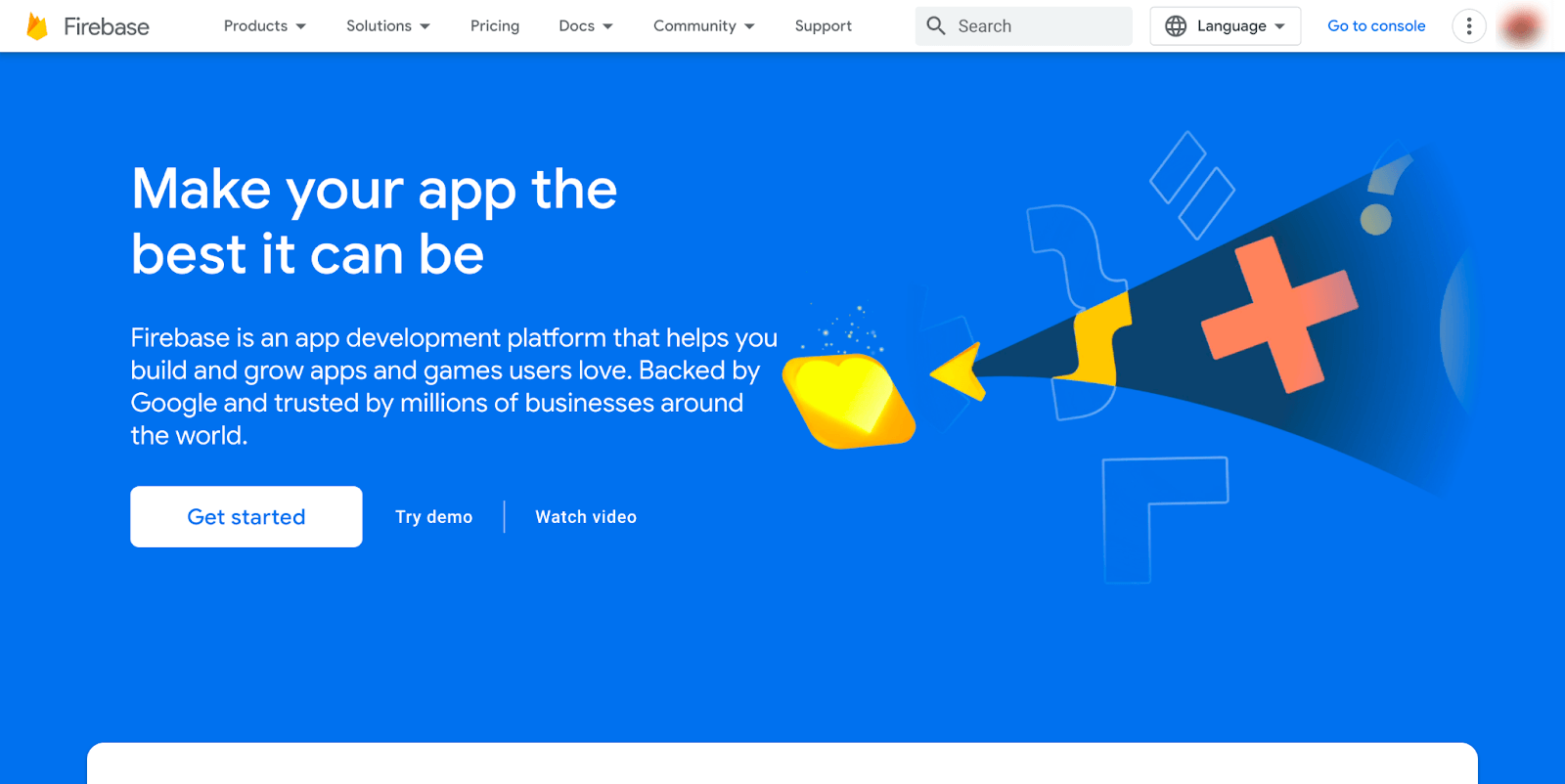Backend as a Service: Appwrite vs. Firebase

Summarize with AI:
Which BaaS platform should you choose for your next app development project? Compare Appwrite and Firebase, and see which features best fit your use case.
Appwrite and Firebase are two popular backend-as-a-service (BaaS) platforms that give you the tools and infrastructure to build and manage server-side components for your applications. They may have comparable functions and goals, but there are still significant differences between the two.
I’ve used both tools, so in this article, I’ll show you how Appwrite and Firebase each function, their differences, and when to utilize which. As we go through them both, we’ll examine your project requirements, features and infrastructure, to determine which tool is acceptable for your distinct use case.
Introduction to Firebase and Appwrite
Firebase and Appwrite both offer similar database, authentication, storage and other functionality. They do, however, have several distinguishing features that set them apart.
Firebase
Firebase is a cloud computing service from Google used for backend services and application development. Firebase provides developers with a wide range of tools and services to build both web and mobile applications.

Appwrite
Appwrite is an open-source and self-hosted BaaS platform used to build web, mobile and Flutter applications. Appwrite provides developers with the core backend features they need to build an application without having to build it from scratch.

Features and Functionality of Appwrite and Firebase
Appwrite and Firebase both offer great backend services to help you build and manage your application. We’ll go over some of their individual features one at a time:
Features of Appwrite
Secured and built-in authentication: Appwrite has a built-in user authentication and management system. It supports verification methods like email/password, OAuth and API key authentication. It also provides protection services like Web Application Firewall rules, denial-of-service protection, SSL certificate and encryption and limits users from multiple login attempts.
Good file storage: You can easily store and serve media and other files. Appwrite provides API for file uploads, downloads and management with built-in compression and encryption.
Scalable database: Appwrite offers a NoSQL database for storing and managing structured data. It provides filtering and sorting data, as well as collection management and document CRUD activities.
Seamless integration: Appwrite allows you to integrate external services and APIs via Webhook. It enables seamless integrations with your favorite tools/technology within your application ecosystem.
Extensibility: Appwrite is very flexible. This means you can tailor it to your specific application requirements by adding custom server-side functions and authentication methods or integrating other services your application needs.
Features of Firebase
Authentication: Firebase provides a variety of user authentication services that allow several means of user authentication, including social login via Facebook, Twitter and Google, as well as email and password. It provides secure methods for authentication, identity verification and account management.
Realtime database: You can synchronize real-time data across clients using Firebase’s NoSQL and cloud-hosted database. With this service, you can create collaborative and reactive applications without having to deal with complicated backend architecture or manual synchronization.
Simple hosting: You can easily and quickly deploy web applications and static content using Firebase Hosting to a global content delivery network (CDN). It offers a dependable and secure hosting option with features such as support for custom domains, SSL certificates, URL redirects and simple deployment workflows.
Remote configuration: You can manage and customize the behavior and appearance of your application using the Firebase remote configuration feature. Aside from that, it allows A/B testing, feature flag management and tailored experiences.
Cloud messaging: Firebase provides a cross-platform messaging tool that helps you communicate with users through notifications and messages. With this service, you can perform targeted messaging and group messaging across various devices such as iOS, Android and web.
Pros of Appwrite
Open-source: Appwrite is an open-source platform. This simply means developers have access to the source code and can modify it to their needs. Appwrite is free to use right now, but it also has a paid plan. Which tier you need depends on your project requirement.
Self-hosted: One unique thing about Appwrite is that it’s self-hosted. This gives you control over your data and infrastructure, unlike Firebase.
Good user management system: Appwrite provides built-in user management and authentication features, making it easy for developers to handle user login, registration and access control.
Multiple integration support: Integration issues can be a challenge for developers. With Appwrite, you can effortlessly combine your favorite tools and technologies to help you deliver features and work effectively with your clients.
Flexible and scalable: With the Appwrite Cloud function, you can build your custom server-side code logic and a flexible environment to execute server-side code.
Active community support: Appwrite has very active community support. They have a Discord page where you can create an issue and also contribute to other issues on the channel. If you have any issue with your application, the support team on the Discord support channel is very active and open to all questions and ideas.
Good storage space: Appwrite provides more secure storage space with the capability to reduce and encrypt your files.
Cons of Appwrite
Appwrite doesn’t offer web app hosting like Firebase.
Appwrite lacks prebuilt extensions compared to Firebase.
Currently, Appwrite has no local emulator, so you must run your own local instance.
Appwrite doesn’t have large community support and ecosystem like Firebase.
Pros of Firebase
Community support and ecosystem: Firebase has a larger community support system and provides extensive documentation, tutorials and videos to help you get started. This makes the learning curve very easy for beginners. Aside from that, it’s backed by Google.
External language and feature support: Firebase offers built-in machine-learning capabilities and other services, such as Google Analytics and cloud messaging.
Messaging: Firebase provides a notification service that allows you to deliver notifications through Firebase without writing any additional code.
Error monitoring tool: Crashlytics is a functionality provided by Firebase. This tool assists in locating and resolving errors and creates reports based on how the issue impacts the user experience.
Machine learning: It provides machine-learning functionalities and services that generate traffic to your app.
Cons of Firebase
Firebase isn’t open source. This simply means users will not be able to modify your codebase.
Firebase doesn’t support all countries, unlike Appwrite, which gives you access to work from any region.
Firebase does not provide a GraphQL API option for developers.
Its free plan has limited features, though it does offer a pay-as-you-go option with more functionality.
Appwrite and Firebase: Which Should You Choose?
Appwrite and Firebase are both great BaaS tools that can shine in certain use cases. But if you want to work with either of them, you need to understand your project requirements, such as community support, flexibility and customization needs.
For example, if you need an open-source tool with seamless integration and a good customization option, Appwrite is the perfect tool. Since it’s self-hosted, you have the option to manage your data and customize and modify the backend infrastructure yourself.
Appwrite also provides cloud services that lessen the load of hosting your application in the cloud. Because Appwrite Cloud takes care of the infrastructure, you can focus more on creating your application.
Appwrite wins out as a database service provider since it offers MySQL and NoSQL databases with the option of using a GraphQL API. In contrast, Firebase only offers a NoSQL database as a JSON API, which may cause some issues when moving a huge set of structured data.
Updated July 16, 2024

Ezekiel Lawson
Ezekiel Lawson is a technical writer and software developer. Aside from building web tools and applications, he enjoys educating people and simplifying complicated issues for their easy understanding by sharing resources that will guide developers through technical writing.

